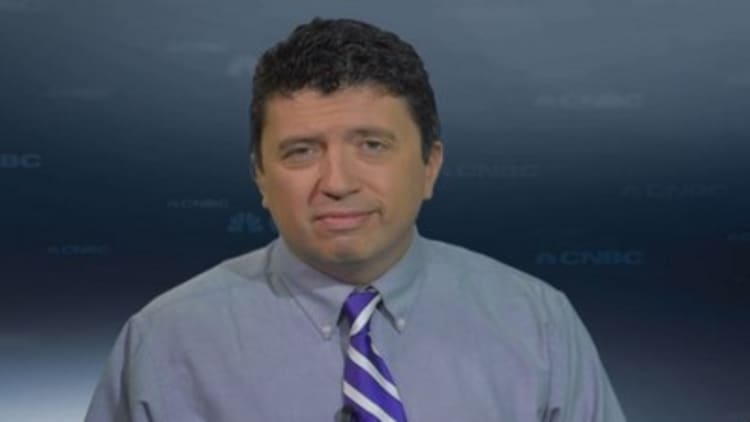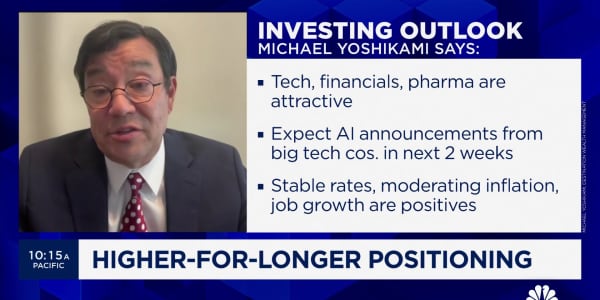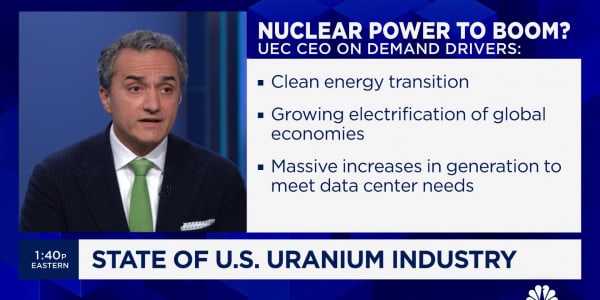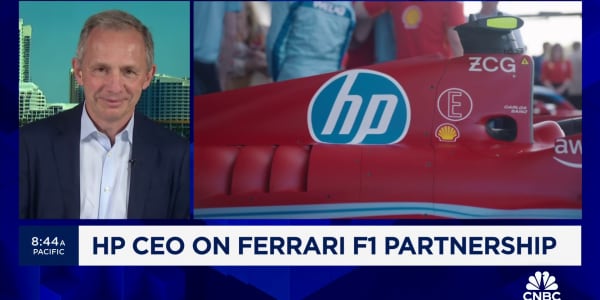
Investors increasingly are running from risk even while maintaining a strong presence in the stock market.
While the two goals may seem incongruous, market participants are making it happen, increasing allocations to large-cap equities while dramatically slashing assets devoted to smaller companies and the once hugely popular high-yield bonds.
The moves come as calls for a market correction—a drop of 10 percent or more—intensify among Wall Street strategists worried about an aging bull market, geopolitical tensions and substantial changes coming to what has been ultra-easy Federal Reserve monetary policy.
"People are getting defensive for a host of reasons, everything from people who think geopolitical events could spike oil and put us down, to those who think the economy's going to roll over to those who think the Fed is behind the curve" on inflation, said Jim Paulsen, chief market strategist at Wells Capital Management. "At the end of the day all of those things put you in the same place—a more defensive posture but an unwillingness to come out of the market."
Read MoreBigger worry than geopolitics? The Fed, of course
Indeed, fund flows paint a picture of investors lowering both their risk profiles and their cash allocations.
For instance, investors yanked $2.7 billion out of high-yield bond funds over the past week, the most since August 2013. Cash allocation is at 11 percent of investor portfolios—a nine-year low—while equity allocation is at a nine-year high of 61 percent, according to Bank of America Merrill Lynch.
In individual exchange-traded fund action, the , which tracks the market's main small-cap index and is off 1.1 percent year to date, has lost $3 billion in 2014—about 11 percent of its total under management—and $1.5 billion in July alone, according to ETF.com. The fund has surrendered $847 million for the month as well.
That money has found its way not to the sidelines, however, but in investment-grade bonds and Treasurys—and, of course, companies, as the index has gained 6.8 percent year to date.
Read MoreBullish BofA changes gears, calls for correction
"Investors have been behaving quite rationally regarding their risk-adjusted asset allocation decision-making and preference for the S&P 500 index over alternative choices," said a paper this week by Michael G. Thompson, managing director at S&P Capital IQ's Global Markets Intelligence unit, and Robert A. Keiser, the vice president.
Research the pair conducted using the Sharpe ratio, which measures asset performance adjusted for risk, showed the S&P 500 to be the best bet for investors.
However, they said a looming climate of rising volatility and interest rates should cause investors to reassess their positions.
"Investors who feel that they are currently carrying more risk than they are inherently or historically comfortable exposing themselves to might consider reevaluating their portfolios in anticipation of a potentially different risk-adjusted framework relative to the experience of the past five years," Thompson and Keiser said. "Since a sustained free lunch on Wall Street is rare, some investors might need to accept the reality of a temporary reduction of investment income in exchange for a more tolerable risk positioning of their investment portfolio."
Read MoreThough just 3% outperform, ETFs keep growing
Ditto for Paulsen, though he disagrees somewhat with the aversion to high yield as he expects some steepening of the yield curve, a move that is friendly in a yield-hungry environment.
Outside of that, he is shifting priorities away from the U.S. and into Canada and Australia—historically a commodities play—as well as emerging markets and a mix of cyclical and defensive names.
"I'm maintaining a secular overweight bet, because I still think there's several more years to the run," Paulsen said. "But that secular bet is getting more defensive, and more diversified."
—By CNBC's Jeff Cox







